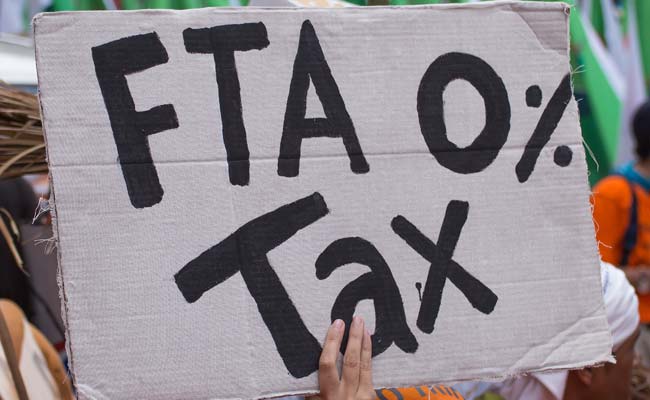
FTAs less understood, more feared: DGFT Director
Jayarama Emani | The Dollar Business  “In an era where tariff barriers are coming down and bilateral among nations is on the rise, it is important to know the importance of Free Trade Agreement(s),” said Sanjeet Singh, Director, Department of Commerce, Ministry of Commerce and Industry, Government of India. Speaking at a seminar on “India’s Engagement with Free Trade Agreements: Opportunities and Challenges” today in Hyderabad, Singh said since India is allowing imports to come in through FTA’s, they provide good opportunity to import raw materials and capital goods that improve manufacturing and help India export better. Talking on similar lines, another Director from DGFT, Ms Anuradha Guru said, “Whether we like it or not, India is now part of FTAs since it is getting preferential tariffs,” and added “India’s share of preferential imports to total imports is 3.4%:22.4%.” Ms Guru went on to say that because of FTAs India has witnessed overall increase in trade especially in export of intermediate and capital goods as also in preferential imports of capital goods like steel and iron. In his open remarks, Shiv Kumar Rungta, President, The Federation of Telangana and Andhra Pradesh Chambers of Commerce and Industry said that there is a greater demand for FTAs in today’s world trade as exporters are complaining about the ‘Rule of Origin.’ With preferential and non-preferential FTAs turning out to be expensive even after producing documentation as a proof. “As transaction costs across the borders turn high, better infrastructure and connectivity among countries is important to reduce protectionism and large investments need to be protected,” Rungta said. Dhananjay Sharma, Deputy Director, FIEO called for greater understanding of FTAs by the business community as India is going beyond the boundaries extending its reach from SAARC to ASEAN to AFTA and now looking at extensive trade with Australia and New Zealand too. Laying focus on data integration, Sharma said capturing data across 110 ports and aggregating the same is very tough as countries exporting underplay the preferential data of exports. He called for installation of some warning mechanisms to track the export data and called for export promotion councils to play an active role in ensuring the same.
“In an era where tariff barriers are coming down and bilateral among nations is on the rise, it is important to know the importance of Free Trade Agreement(s),” said Sanjeet Singh, Director, Department of Commerce, Ministry of Commerce and Industry, Government of India. Speaking at a seminar on “India’s Engagement with Free Trade Agreements: Opportunities and Challenges” today in Hyderabad, Singh said since India is allowing imports to come in through FTA’s, they provide good opportunity to import raw materials and capital goods that improve manufacturing and help India export better. Talking on similar lines, another Director from DGFT, Ms Anuradha Guru said, “Whether we like it or not, India is now part of FTAs since it is getting preferential tariffs,” and added “India’s share of preferential imports to total imports is 3.4%:22.4%.” Ms Guru went on to say that because of FTAs India has witnessed overall increase in trade especially in export of intermediate and capital goods as also in preferential imports of capital goods like steel and iron. In his open remarks, Shiv Kumar Rungta, President, The Federation of Telangana and Andhra Pradesh Chambers of Commerce and Industry said that there is a greater demand for FTAs in today’s world trade as exporters are complaining about the ‘Rule of Origin.’ With preferential and non-preferential FTAs turning out to be expensive even after producing documentation as a proof. “As transaction costs across the borders turn high, better infrastructure and connectivity among countries is important to reduce protectionism and large investments need to be protected,” Rungta said. Dhananjay Sharma, Deputy Director, FIEO called for greater understanding of FTAs by the business community as India is going beyond the boundaries extending its reach from SAARC to ASEAN to AFTA and now looking at extensive trade with Australia and New Zealand too. Laying focus on data integration, Sharma said capturing data across 110 ports and aggregating the same is very tough as countries exporting underplay the preferential data of exports. He called for installation of some warning mechanisms to track the export data and called for export promotion councils to play an active role in ensuring the same.
This article was published on February 19, 2015.

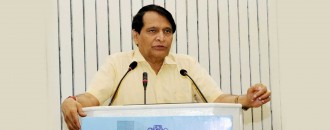
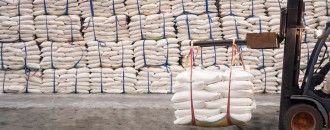
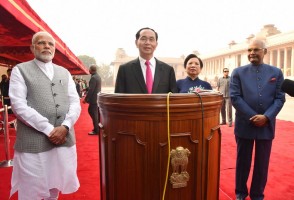
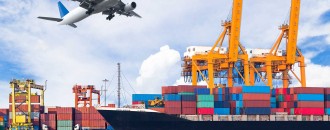

 to success.
to success.